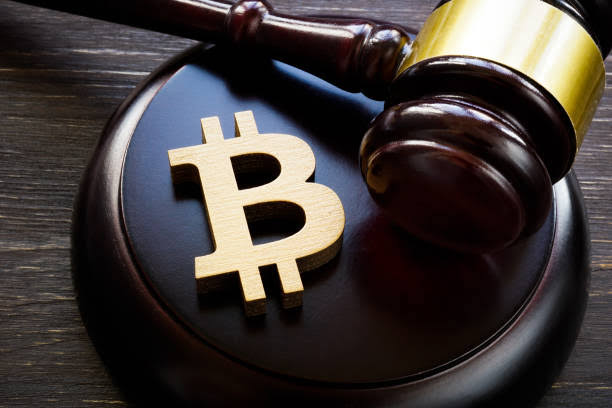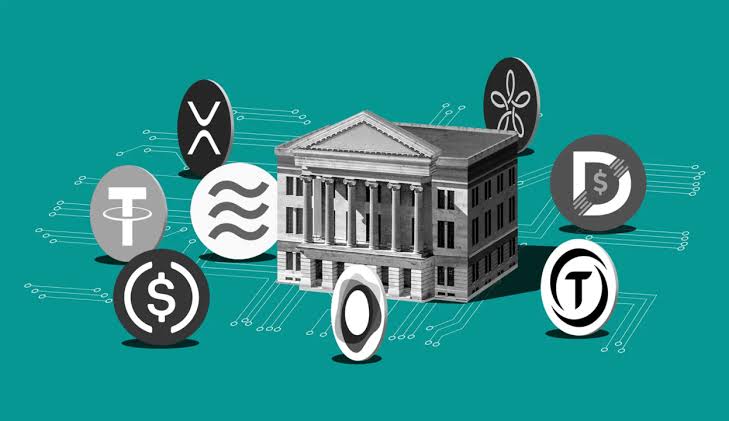Introduction
What is Crypto regulations?
Crypto guidelines visit the criminal frameworks and pointers set up by way of governments and regulatory our our bodies to govern the use, trading, and advent of cryptocurrencies. These recommendations are designed to defend customers, prevent fraud, and make sure the steadiness of economic markets. By placing regulations round Initial Coin Offerings (ICOs), cryptocurrency exchanges, and one-of-a-kind crypto-associated activities, these rules purpose to carry order to the often unstable and decentralized international of digital currencies. The scope and strictness of crypto regulations range widely via america of the usa, impacting how cryptocurrencies may be used and traded globally.

What are ICOs?
In the fast-evolving global of cryptocurrencies, Initial Coin Offerings (ICOs) have emerged as a groundbreaking technique for blockchain startups to raise capital. By allowing groups to bypass conventional funding routes like undertaking capital or public services, ICOs provide a proper away line to investors. However, the fast upward thrust of ICOs additionally highlighted great risks, in particular inside the absence of regulatory oversight. This caused the emergence of crypto guidelines, which now play a important characteristic in shaping the ICO panorama. This article explores how those policies have impacted ICOs, delving into their evolution, local variations, and destiny trends.
Why Are ICOs Important?
An Initial Coin Offering (ICO) is a fundraising mechanism where new cryptocurrency initiatives promote a component in their tokens to early traders in alternate for capital. The technique commonly involves publishing a whitepaper that outlines the task’s goals, the crew behind it, and the token’s software within the ecosystem. ICOs gained recognition due to the fact they presented an handy manner for startups to elevate budget without relying on conventional economic structures, which can be often luxurious and time-ingesting.

For buyers, ICOs offered an opportunity to get in at the ground floor of doubtlessly modern projects, now and again at a fraction of the cost. Success stories like Ethereum, which raised over $18 million in 2014 via an ICO, have cemented the attraction of this fundraising approach. However, the shortage of preliminary crypto rules allowed fraudulent activities to proliferate, putting investor capital at threat.
The Rise of ICOs and the Initial Lack of Regulation
During the early days of ICOs, the regulatory landscape turned into in reality non-existent. This lack of oversight contributed to a boom in ICO hobby, with masses of initiatives launching token sales to keen traders. While lots of those tasks had been legitimate, the absence of crypto regulations also made it easy for scammers to launch fraudulent ICOs. Some high-profile instances, along with the 2017 Centra Tech ICO, which raised $32 million before being discovered as a fraud, highlighted the vulnerabilities in this unregulated space.

The preliminary lack of crypto regulations caused significant investor losses, prompting governments and regulatory bodies to do so. The growing range of scams and failed projects spurred requires extra stringent oversight to shield investors and hold marketplace integrity.
The Evolution of Crypto Regulations for ICOs
As the ICO marketplace matured, so did the technique of regulators. In the United States, the Securities and Exchange Commission (SEC) changed into one of the first to take a sturdy stance on ICOs. In 2017, the SEC issued the DAO Report, which declared that sure ICOs might be classified as securities services and therefore issue to federal securities felony pointers. This marked the beginning of a greater based regulatory surroundings for ICOs.

Other international locations determined healthy, with the European Union imposing its personal guidelines for ICOs beneath its broader economic policies. China took a extra drastic approach via outright banning ICOs in 2017, mentioning issues over economic stability and investor protection. These tendencies forced ICO tasks to evolve to a modern-day reality where compliance with crypto policies have turn out to be critical for fulfillment.
Compliance regularly includes registering with regulatory our bodies, project Know Your Customer (KYC) checks, and providing precise statistics about the mission and its group. While those measures have elevated transparency and investor self assurance, they’ve got additionally introduced layers of complexity and value to launching an ICO.
Regional Differences in ICO Regulations
The crypto regulation landscape for ICOs varies considerably throughout distinct areas, creating a patchwork of guidelines that ICO tasks need to navigate. In the United States, the SEC’s type of ICOs as securities method that tasks ought to comply with stringent crypto regulations designed to protect traders. This consists of filing for exemptions, adhering to disclosure necessities, and ensuring that only accredited investors take part in certain ICOs.

In comparison, international locations like Singapore and Switzerland have adopted a more favorable stance closer to ICOs. Singapore’s Monetary Authority has provided clear recommendations on how ICOs have to be performed, that specialize in anti-cash laundering (AML) and KYC necessities in place of implementing outright bans. Switzerland, in particular its “Crypto Valley” in Zug, has grow to be a hub for ICO pastime because of its supportive regulatory surroundings, which balances innovation with investor safety.
On the alternative give up of the spectrum, China’s ban on ICOs has driven tasks to relocate to more crypto-pleasant jurisdictions, a phenomenon called regulatory arbitrage. This movement highlights the worldwide disparities in crypto regulations and the way they can have an impact on the success and distribution of ICO tasks.
The Impact of Strict Regulations on ICOs
The advent of strict crypto regulations has had a profound effect at the ICO marketplace. In areas with heavy regulatory oversight, the variety of ICOs has decreased due to the fact the price and complexity of compliance have risen. For many startups, the criminal and administrative burdens related to launching an ICO have made this as quickly as-handy fundraising method lots less appealing.

Moreover, the shift within the route of compliance has brought about a decrease in the speculative frenzy that characterised the early days of ICOs. Investors for the time being are extra careful, with a more emphasis on due diligence and legal soundness. While this has contributed to a greater robust marketplace, it has additionally reduced the quantity of innovation, as responsibilities that could push the limits of generation and finance are often deterred via regulatory constraints.
The upward push of Security Token Offerings (STOs) is a proper away reaction to the ones disturbing situations. STOs are designed to be surely compliant with securities felony tips, providing a extra regulated possibility to ICOs. While STOs deal with some of the jail concerns related to ICOs, moreover they encompass their very own set of crypto regulations demanding conditions and limitations.
The Role of Regulatory Compliance in ICO Success
Despite the disturbing situations, regulatory compliance has emerge as a key element inside the achievement of ICOs. Projects that prioritize felony compliance and transparency are much more likely to attract critical buyers and avoid legal pitfalls. Successful ICOs often interact with regulators early in the device, on the lookout for criminal advice to make certain that their token offerings are set up in a way that complies with local prison hints.

For instance, obligations like Filecoin and Tezos, which raised significant quantities through ICOs, have been able to navigate the regulatory panorama efficaciously by using manner of making sure that their offerings had been compliant with applicable securities legal hints. These tasks set up that at the same time as compliance adds complexity, it moreover builds investor accept as true with and contributes to lengthy-term fulfillment.
Moreover, regulatory compliance can function a competitive benefit in the crowded ICO market. As investors grow to be extra discerning, they are possibly to desire responsibilities that adhere to crypto rules and display a determination to criminal and ethical standards.
Future Trends in ICO Regulations
The future of ICOs will probable be shaped by means of ongoing trends in crypto regulations. As governments and regulatory bodies keep to refine their processes to cryptocurrencies, we will assume to see greater standardized international regulations. These standards may want to help create a greater predictable environment for ICOs, reducing the uncertainty that currently surrounds the market.
Additionally, the trend closer to accelerated cooperation between countries on crypto regulations matters might also result in the development of global frameworks for ICOs. Such frameworks ought to offer clear suggestions on how ICOs need to be performed, irrespective of the jurisdiction, decreasing the want for initiatives to navigate a complex internet of neighborhood guidelines.

However, the future of ICOs may also be stimulated via the emergence of new fundraising fashions. Decentralized Finance (DeFi) platforms, for instance, are exploring modern ways to elevate capital without counting on conventional ICOs. These new models could provide alternatives to ICOs, specially in jurisdictions with restrictive crypto regulations.
Navigating the Regulatory Landscape:
Tips for ICO Projects
For startups thinking about launching an ICO in in recent times’s regulated surroundings, navigating the complex panorama of crypto recommendations is critical. Here are a few practical pointers:

- Engage with Legal Experts Early: Before launching an ICO, seeking out advice from crook specialists who focus on cryptocurrency guidelines. They can help shape your token presenting in a manner that complies with close by crook recommendations and avoids commonplace pitfalls.
- Conduct Thorough Due Diligence: Ensure that your challenge is apparent and that each one vital disclosures are made to functionality buyers. This consists of presenting easy facts approximately the project’s dreams, the monetary commercial enterprise enterprise organisation within the decrease decrease lower back of it, and the dangers concerned.
- Stay Informed About Regulatory Changes: The regulatory landscape for ICOs is continuously evolving. Keep updated with changes in crypto pointers and be organized to evolve your ICO method consequently.
- Implement KYC and AML Procedures: To look at regulatory requirements, put into effect robust Know Your Customer (KYC) and Anti-Money Laundering (AML) techniques. This not excellent allows you study the regulation but moreover builds gather as actual with with consumers.
- Consider Alternative Fundraising Models: If the regulatory environment in your jurisdiction is in particular restrictive, keep in thoughts opportunity fundraising techniques, which includes Security Token Offerings (STOs) or decentralized finance (DeFi) structures.
Crypto Regulations Impact on Cryptocurrcy
Crypto regulations significantly impact the cryptocurrency market by shaping how digital assets are used, traded, and developed. These regulations can influence the market’s growth, stability, and investor confidence. For example, stringent regulations can limit market access, reduce volatility, and deter fraud, making the market safer for investors. Conversely, overly restrictive regulations may stifle innovation, drive businesses to more lenient jurisdictions, and reduce market liquidity. The overall impact of crypto regulations is a balancing act between promoting innovation and ensuring financial security in the evolving digital economy.
Conclusion
The upward push of crypto rules has extensively reshaped the ICO landscape, remodeling it from an unregulated free-for-all into a extra established and legally compliant marketplace. While those policies have introduced new demanding situations for ICO initiatives, they have additionally introduced lots-wanted stability and investor protection. As the crypto regulation environment continues to conform, ICO projects ought to prioritize compliance to achieve this more and more complicated marketplace. By staying informed, enticing with criminal professionals, and adhering to quality practices, ICO projects can navigate the regulatory panorama and maintain to innovate in the barriers of the law.